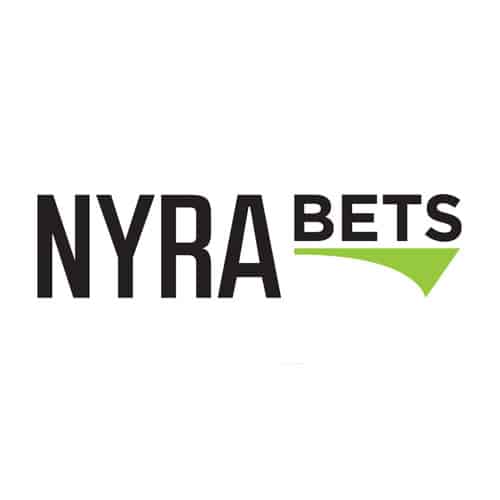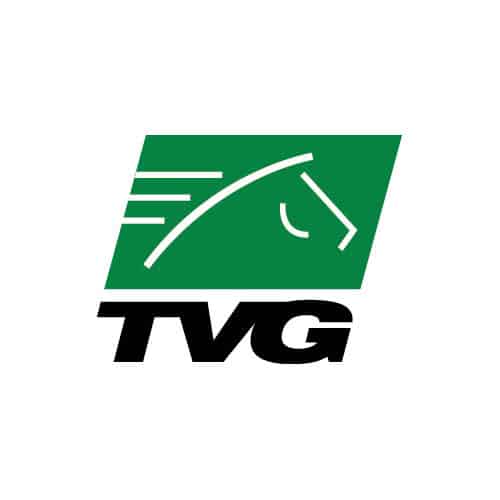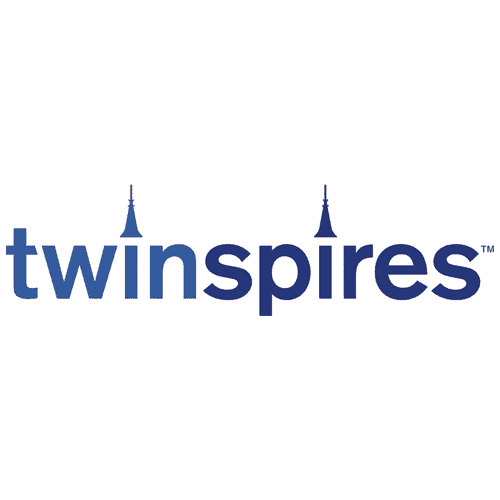Keeneland and Fasig-Tipton Protocols
Paycheck Protection Program Requirements and Procedures
New SBA Guidance Makes Tracks Eligible for Paycheck Protection Program; Farms Can Now Apply For Economic Injury Disaster Loan
LEXINGTON, Ky. (April 24, 2020) – President Trump signed into law today an emergency aid package providing additional relief to small businesses and health care facilities, and the Small Business Administration released updated guidance that will assist the horse industry.
The new law provides $310 billion to replenish the Paycheck Protection Program (PPP) for small businesses, which was oversubscribed. The additional appropriation will allow financial institutions to make additional forgivable loans to eligible small businesses in order to keep employees on the payroll for eight weeks.
The new law also includes $60 billion in loans and grants for a separate Economic Injury Disaster Loan (EIDL) program, and makes farms and ranches eligible for the loans. Farms with 500 or fewer employees whose primary activity is breeding horses are now eligible to apply.
Separately, the Treasury and SBA released updated interim final rules that contain a key clarification that will provide essential relief to racetracks and other businesses who rely on gambling income and otherwise qualify for an SBA loan. Under the new rules, businesses that receive legal gambling income are eligible to apply for this loan forgiveness program.
The NTRA has been lobbying the SBA for this updated guidance for several weeks.
“We thank the SBA and our allies on the Hill for providing clarification that will allow broader participation in the PPP and EIDL loan programs by racetracks, farms and others in our industry who have been negatively impacted by the coronavirus pandemic,” said NTRA President and CEO Alex Waldrop.
NTRA partner Dean Dorton, one of the nation’s leading experts on equine tax matters, has posted an update on its Covid-19 microsite at NTRA.com that outlines all of these new provisions that will positively impact horse racing and breeding. That PowerPoint can be found here.
Recording of NTRA/Dean Dorton April 1 Webinar on Covid-19 Federal Relief Packages – UPDATED
NTRA Update on Federal Response to Coronavirus Pandemic
March 26, 2020
Like virtually every other industry and sport, U.S. horseracing is grappling with the realities and uncertainties brought about by the coronavirus pandemic. Thousands of businesses and individuals – from farms to racetrack employees, trainers, and the backstretch workers who care for our horses – have had their lives disrupted in ways we could not have imagined only a short time ago. That being said, the industry’s first priority at this time must be the health and safety of our workforce and the general public at large.
In response to the pandemic, Congress and the Administration are in the process of passing a series of bipartisan bills aimed at combating the coronavirus, jump starting the economy and providing financial relief to individuals and businesses during these uncertain times. Here is a list of the recently enacted and pending legislation:
The Coronavirus Preparedness Response and Supplemental Appropriations Act, already passed by Congress and signed by the President, allows $1 billion in loan subsidies to be made available to help small businesses, small agricultural cooperatives and non-profit organizations which have been impacted by financial losses as a result of the coronavirus. Contact your local small business administration office for more details on how to access this new loan program.
The Families First Coronavirus Response Act, also passed by Congress and signed into law, provides paid leave, establishes free testing, protects public health workers and provides important benefits to children and families for those impacted by the coronavirus. Protections for the employers of affected workers also are included in the legislation in the form of tax credits to offset the costs of providing emergency sick leave.
The Coronavirus Aid, Relief, and Economic Security Act or CARES Act is a bill now before the U.S. Senate that is expected to provide an economic stimulus package valued at $2 trillion. The bill would provide direct payments to many Americans, including individuals and couples; $130 billion to hospitals that are seeing their resources stretched to the brink and beyond in their battle to combat the coronavirus, $500 billion for corporations; $367 billion for small businesses; $150 billion in aid for local and state governments; and billions of dollars in extended unemployment benefits for furloughed workers. We expect this bill to be passed by both House and Senate and signed by the President by the end of this week. The NTRA continues to review this massive stimulus package and will provide details as they become available.
It is likely that Congress will turn its attention in coming weeks or months to a fourth bill, especially if the crisis worsens. While the first three bills are aimed mostly at the general economy, the fourth bill may well focus on damage to specific economic sectors and efforts to help those sectors and their workers. Undoubtedly, our industry has been adversely impacted with racetrack and casino closures, the postponement of equine sales, and other negative economic events necessitated by federal, state and local orders and recommendations as well as the industry’s own duty and responsibility to promote the safety of our workforce and public health in general.
Our challenge with regard to this fourth bill will be to compete with many other industries for limited federal resources, especially since our industry is built most visibly on sports betting and entertainment. Nonetheless, we are significant employers and represent a massive agribusiness with an extensive economic footprint across the nation. We will make our case at the Federal level for horseracing as we advocate for our $36.6 billion industry that accounts nationwide for nearly half a million jobs.
Stay safe and stay tuned for future updates, and please visit NTRA.com for information on how our industry is responding to the coronavirus pandemic.
– Alex Waldrop, NTRA President and CEO
NYTHA Update on Federal Disaster Relief Provisions Webinar Slides and Replay
American Horse Council Analysis of Federal Relief Packages
Letter from NTRA President and CEO on COVID-19
Important links from Centers for Disease Control (CDC)
Summary of COVID-19 Federal Aid
Summary of Coronavirus Aid, Relief, and Economic Security Act
Loan Applications
Links to Federal Coronavirus Relief Information
Covid-19 Backstretch Worker Relief Effort
Jockey Club Safety Net to Benefit Backstretch Workers
Racetrack Media Best Practices
Racetrack Security Access Resources
These are Microsoft Excel and Word Documents. Whenever you click the button, the files will automatically download onto your computer and will likely be located in your downloads folder or wherever you have designated files to download to.
Breeding Farm COVID-19 Protocols
NTRA National Teleconference on COVID-19
(03-16-2020)
Thoroughbred Owners of California Teleconference
(03-14-2020)
Features numerous industry executives (first 25 minutes of call focuses on COVID-19)
COVID-19 Procedures for Maryland Horsemen
(03-13-2020)
COVID-19 and Horse
Statement from Dr. Peter Timoney about Covid-19 and Horses:
As previously indicated, coronaviruses are a group of diverse viruses that have been found in a wide range of host species, including birds and mammals. SARS-CoV-2, the causal agent of COVID-19, is the most recent member of the group to be discovered in late 2019. It is a totally distinct coronavirus from equine coronavirus, a pathogen of equids first identified in the early 1970s, and associated with a range of clinical signs in the horse from gastrointestinal disease to fever, loss of appetite and depression. There has never been any indication since its original discovery that equine coronavirus has caused infection in humans.
It is not surprising in light of its recent emergence, that there are many aspects of the biology of SARS-CoV-2, its epidemiology and the pathogenesis of COVID-19 that remain to be elucidated, although this is rapidly changing. The outcome of comparative genomic analysis would indicate that this virus very likely originated in bats.
With reference to virus transmission, it should be pointed out that the principal means of dissemination of SARS-CoV-2 is very different to that of equine coronavirus. SARS-CoV-2 is spread primarily by the respiratory route through the dispersal of aerosolized infective secretions from acutely infected individuals; by contrast, equine coronavirus is transferred between horses by consumption of fecal contaminated material (oral-fecal route).
A point of major and continuing concern is whether given appropriate circumstances, SARS-CoV-2 is capable of infecting horses and other domestic and wildlife animal species. While isolated cases of SARS-CoV-2 infection have been confirmed in dogs and cats in Asia and Europe, and even in a Malayan tiger in the New York Bronx Zoo, there are no reports at the present time of the virus infecting or causing disease in horses. The answer as to whether horses are resistant or not to infection will be dependent upon the outcome of attempted transmission of the virus following known exposure of horses to a handler who is COVID-19 positive. Even if human transmission of the virus were to occur in such a situation, there is no certainty that it would result in a productive infection in the horse. Failure to establish such an infection would minimize if not eliminate any role that an infected horse might play in the transmission and spread of the virus.
Undoubtedly, the state of knowledge of SARS-CoV-2 and COVID-19 will continue to be updated in the coming weeks and months. The availability of new information on the virus and the disease should help better define and improve our understanding of the susceptibility of the horse and other domestic and wildlife animal species to the virus and delineate what role if any, certain species might play in the epidemiology of this highly important human pathogen.
Peter Timoney





